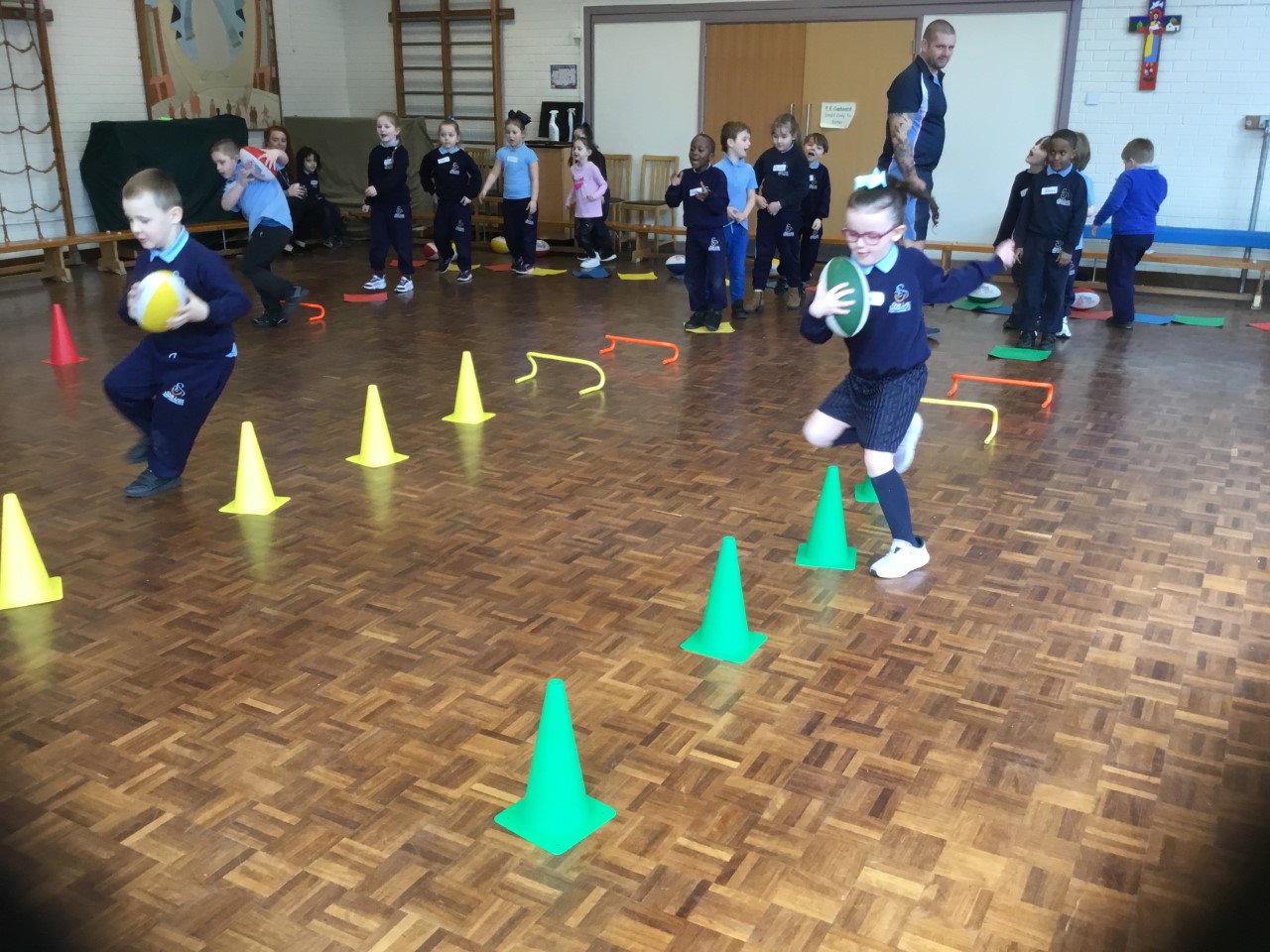Purpose of study
A high-quality physical education curriculum inspires all pupils to succeed and excel in competitive sport and other physically demanding activities. It should provide opportunities for pupils to become physically confident in a way which supports their health and fitness. Opportunities to compete in sport and other activities build character and help to embed values such as fairness and respect.
Aims
The national curriculum for physical education aims to ensure that all pupils:
- develop competence to excel in a broad range of physical activities
- are physically active for sustained periods of time
- engage in competitive sports and activities
- lead healthy, active lives
Attainment targets
By the end of each key stage, pupils are expected to know, apply and understand the matters, skills and processes specified in the relevant programme of study.
Subject content
Key stage 1
Pupils should develop fundamental movement skills, become increasingly competent and confident and access a broad range of opportunities to extend their agility, balance and coordination, individually and with others. They should be able to engage in competitive (both against self and against others) and co-operative physical activities, in a range of increasingly challenging situations.
Pupils should be taught to:
- master basic movements including running, jumping, throwing and catching, as well as developing balance, agility and co-ordination, and begin to apply these in a range of activities
- participate in team games, developing simple tactics for attacking and defending
- perform dances using simple movement patterns
Key stage 2
Pupils should continue to apply and develop a broader range of skills, learning how to use them in different ways and to link them to make actions and sequences of movement. They should enjoy communicating, collaborating and competing with each other. They should develop an understanding of how to improve in different physical activities and sports and learn how to evaluate and recognise their own success.
Pupils should be taught to:
- use running, jumping, throwing and catching in isolation and in combination
- play competitive games, modified where appropriate [for example, badminton, basketball, cricket, football, hockey, netball, rounders and tennis], and apply basic principles suitable for attacking and defending
- develop flexibility, strength, technique, control and balance [for example, through athletics and gymnastics]
- perform dances using a range of movement patterns
- take part in outdoor and adventurous activity challenges both individually and within a team
- compare their performances with previous ones and demonstrate improvement to achieve their personal best
PE at OLI
At OLI we have a great provision for PE and Sport. We have a hall equipped with gymnastics apparatus as well as equipment to suit the National Curriculum, from dance through to invasion games.
Through the PE Premium we have a silver membership package from Liverpool School Sports Partnership which helps us to improve the quality and breadth of PE and sport provision. This includes increasing participation in PE and sport so that all pupils develop healthy lifestyles and reach the performance levels they are capable of. The package allows our children to compete in competitions against other schools as well as Continual Professional Development for all our staff.
We have a highly qualified coach from Liverpool School Sports Partnership who supports, and team teaches with our staff to ensure we deliver a high quality PE curriculum. The children also access dance in the curriculum with our specialist dance teacher, who links wider curriculum themes to their lessons, culminating in an end of topic performance which parents are invited to.
Children in key stage 1 and EYFS also have access to ‘RugbyTots’, a course focusing on the teaching of spacial awareness and physical literacy through rugby.

